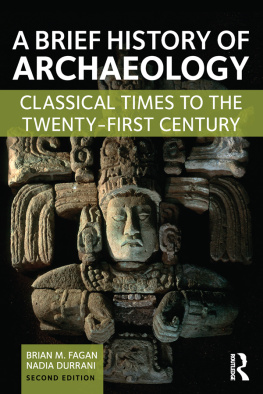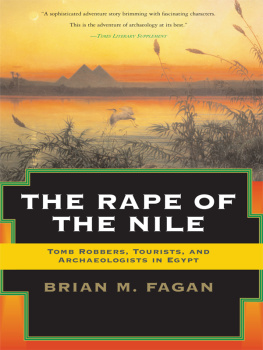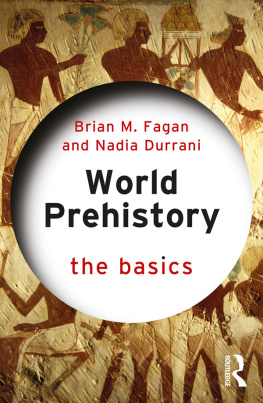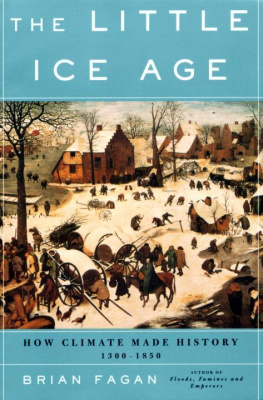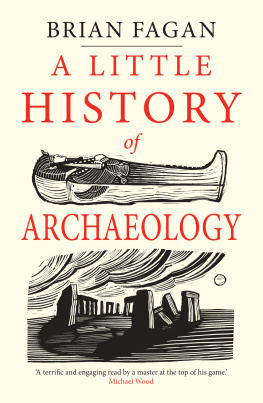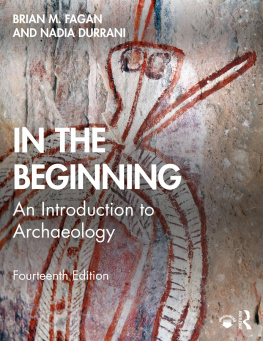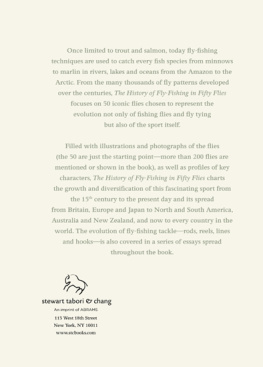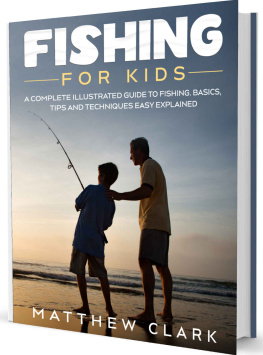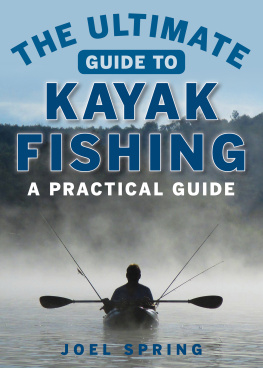FISHING

Men apart. Danish fishermen with the sea etched in their faces. Michael Ancher, To Fiskere Ved en Bad (Two fishermen beside a boat), 1879. Courtesy Staten Museum for Kunst/SMK Foto.
FISHING
How the Sea
Fed Civilization

BRIAN FAGAN

Published with assistance from the Louis Stern Memorial Fund.
Copyright 2017 by Brian Fagan. All rights reserved. This book may not be
reproduced, in whole or in part, including illustrations, in any form (beyond that
copying permitted by Sections 107 and 108 of the U.S. Copyright Law and except by
reviewers for the public press), without written permission from the publishers.
Yale University Press books may be purchased in quantity for educational, business,
or promotional use. For information, please e-mail (U.S. office)
or (U.K. office).
Designed by Nancy Ovedovitz. Set in Adobe Caslon type by
Integrated Publishing Solutions. Printed in the United States of America.
Library of Congress Control Number: 2017934016
ISBN 978-0-300-21534-2 (hardcover : alk. paper)
A catalogue record for this book is available from the British Library.
This paper meets the requirements of ansi/niso z39.48-1992
(Permanence of Paper).
10 9 8 7 6 5 4 3 2 1
To
Brian Walter and Mary Gwendoline Margaret Fagan
My late father and mother, with love and gratitude

Deo patriaeque fidelis
And with thanks to Earl Viau, who gave us the plate,
so it could return home
CONTENTS

PREFACE

My only accomplishment as a fisherman is that once, many years ago in a placid English stream, I tickled a trout with my fingers and then caught it. My only experience with rod and line dates to when I was nine. Some friends and I tried our luck in a small local river. All we caught were eels, once a much-favored food but rejected with disgust by my mother. I enjoy a delicious fish dish as much as anyone but not what the immortal Izaak Walton called The Art of Angling. I have neither the patience nor the powers of observation, qualities I much admire in others, to be a recreational fisherman. So this is a history of fishing written by a nonfisherman. With the exception of the North Atlantic cod trade, there are almost no books or even popular articles that cover the history of fishing from a global perspective.
Fishing has played an important and overlooked role in human history. Of the three ancient ways of obtaining foodhunting, plant foraging, and fishingonly the last remained important after the development of agriculture and stock raising some twelve thousand years ago. Wild plant gathering is economically significant nowhere in the world today. Hunting exists mainly as illegal poaching for the illicit ivory and traditional medicine trades, and secondarily in North America as a means of controlling wild populations. Fishing, however, not only survived but expanded to provide rations for pharaohs, provisions for Norse sailors, and, today, food for millions of us. Yet fisherfolk and their communities have almost entirely escaped notice. They held their knowledge close to their chests and seldom gave birth to powerful monarchs or divine rulers. Because they lived and died in quiet obscurity, writing their history means drawing on a wide range of esoteric and specialized sources.
Much history vanishes with those who lived it. The problem is especially acute with fishing people. Their past unfolded with the help of unwritten knowledge passed from one generation to the next by word of mouth. Much of it came from tough times at sea. The Danish artist Michael Ancher painted fishermen from Skagen in northern Denmark during the late 1870s, when fishers still worked the North Sea under sail. One painting shows two fishers leaning against a boat and gazing into the teeth of the wind, the land at their back. The meaning of the ocean is etched into their faces: bearded, weather-beaten, stern, and unyielding. Fishers are people who draw their living from a hard, uncontrollable world that is perfectly indifferent to their fortune and suffering. This history is an effort to show what such fisherfolk did to help create our modern world.
The earliest fishing arose out of the fundamental human quality of opportunism. Careful observation, combined with grabbing chances when they arose, started our ancestors fishing two million years ago or so. Lifting marooned catfish from shallow African pools required nimble hands and careful stalking to avoid casting a shadow on the water. The art lay in knowing when and where to look, exactly the same skill used to collect honey, scavenge lion kills, and run down small antelope. The only difference was that these prey were in shallow water. One can hardly call this fishing, more a form of opportunistic hunting that persisted for tens of thousands of years.
The same observation can be applied to mollusks, although they are much easier to take than fish. Clams, limpets, oysters, and whelks cluster in dense patches, the variables being accessibility and currents or tides. Like fish, they served as a supplemental food, usually not a favorite one. From a hunter-gatherers point of view shellfish were a predictable food, the kind of resources that became the anchors of life on the move. People visited the mollusk beds when other foods were in short supply, often in late winter and spring.
Opportunistic fish and mollusk collecting became an integral part of annual journeys through hunting territories, whether large or small. Skipjack tuna swimming inshore were prey for people on East Timor forty thousand years ago. Both the Neanderthals and modern late Ice Age hunters took fish and mollusks when the need or opportunity arose. By fifteen thousand years ago people living along the Vzre River in southwest France and elsewhere harvested spring and autumn salmon runs. Artists carved the fish on reindeer antler and engraved them on cave walls.
No one invented fishing. Everyone knew fish were there for the taking at specific times and places. Im struck by the ways in which they were caught, even harvested in considerable numbers, with no startling technological innovations. Spears with barbed wood or antler tips were used as much on land as they were against fish in shallow water. Pointed antler, bone, and wooden gorges and, later, hooks were also ideal for catching birds. The nets and traps deployed against small game worked in water, too. Artifacts used for fishing remained startlingly unchanged through history, even if there were also specialized hooks and larger nets. The fishers observational skill is the major tool and always has been.
In the sense that we are familiar with it today, fishing came into its own with the natural global warming that ended the last Ice Age glaciation after fifteen thousand years ago, especially after about six thousand years BP, when sea levels finally stabilized. Climbing temperatures, retreating ice sheets, and rising sea levels transformed northern environments. People moved to coasts and riverbanks, to lakeshores and lagoons. This is when fishing became a central part of subsistence, especially for groups living on newly productive coastlines, where shallow-water fish and mollusks abounded. For the first time the dynamics of human existence changed. Many communities now dwelt in the same locations either permanently or for many months of the year.
Next page

